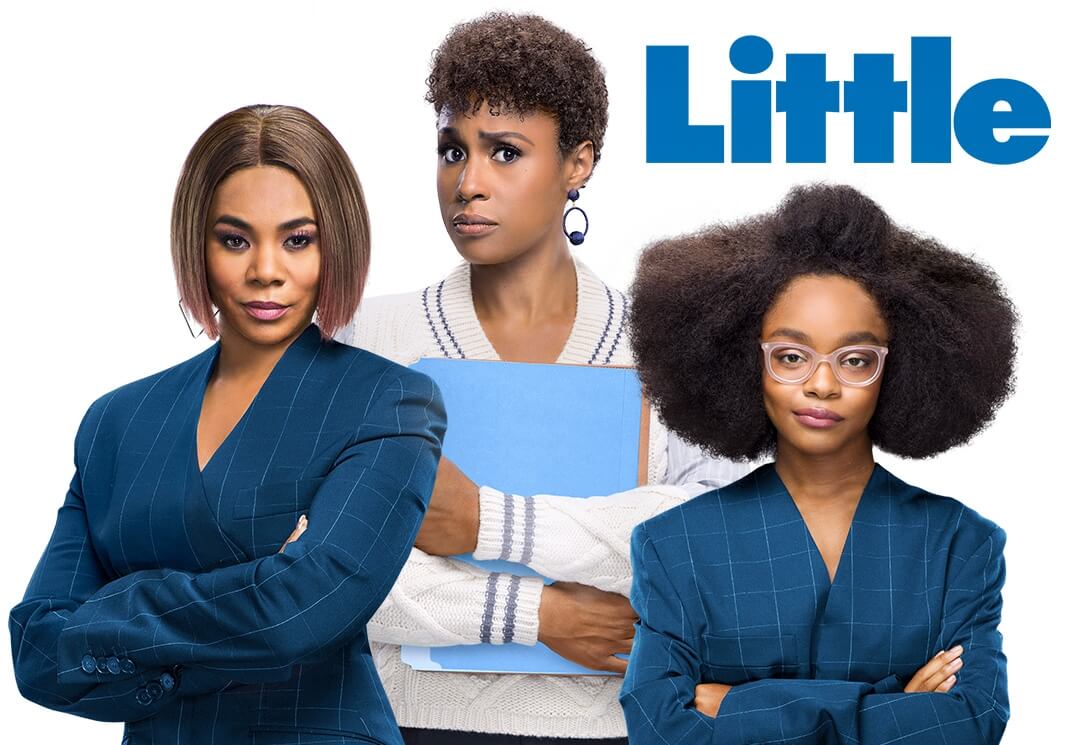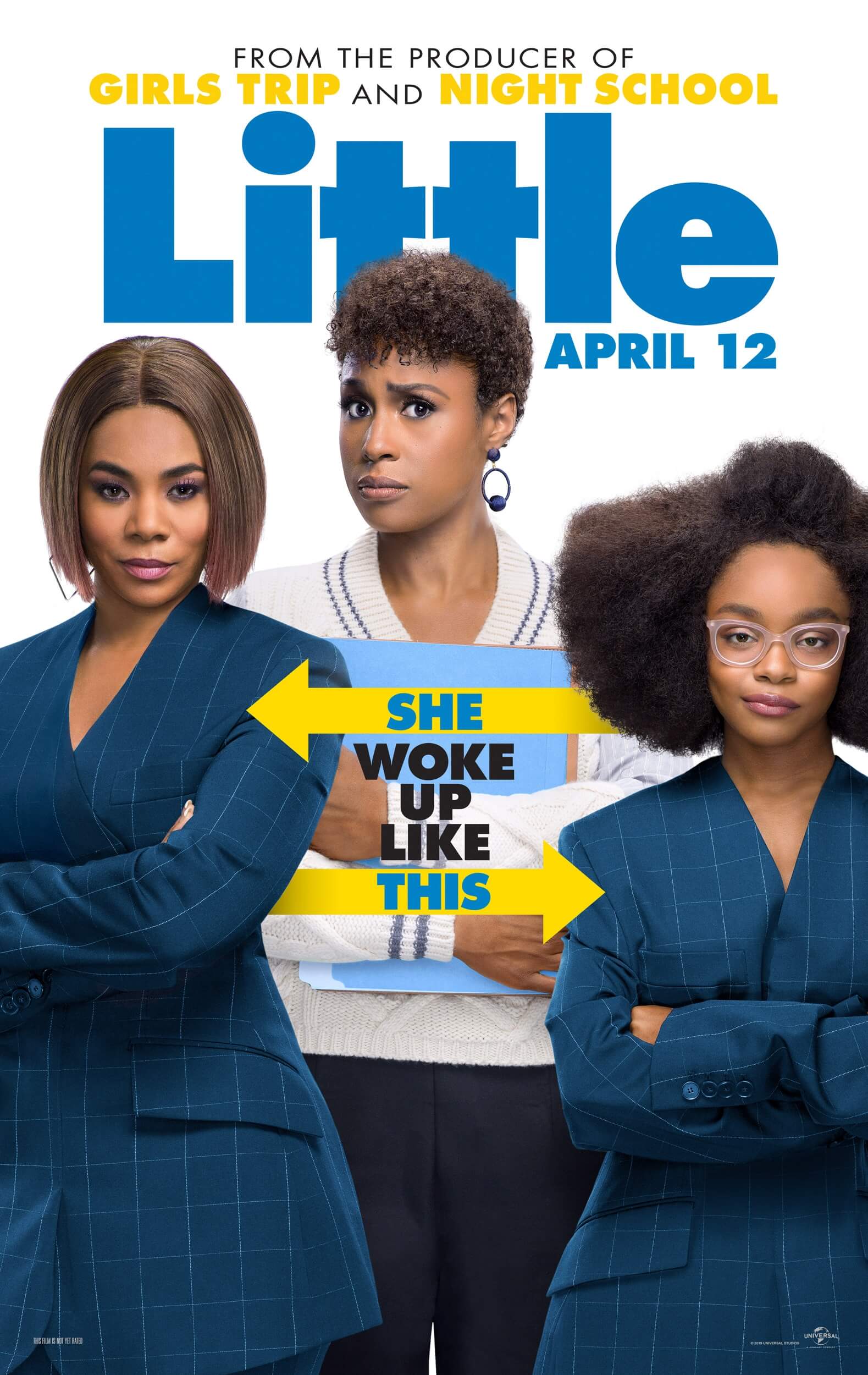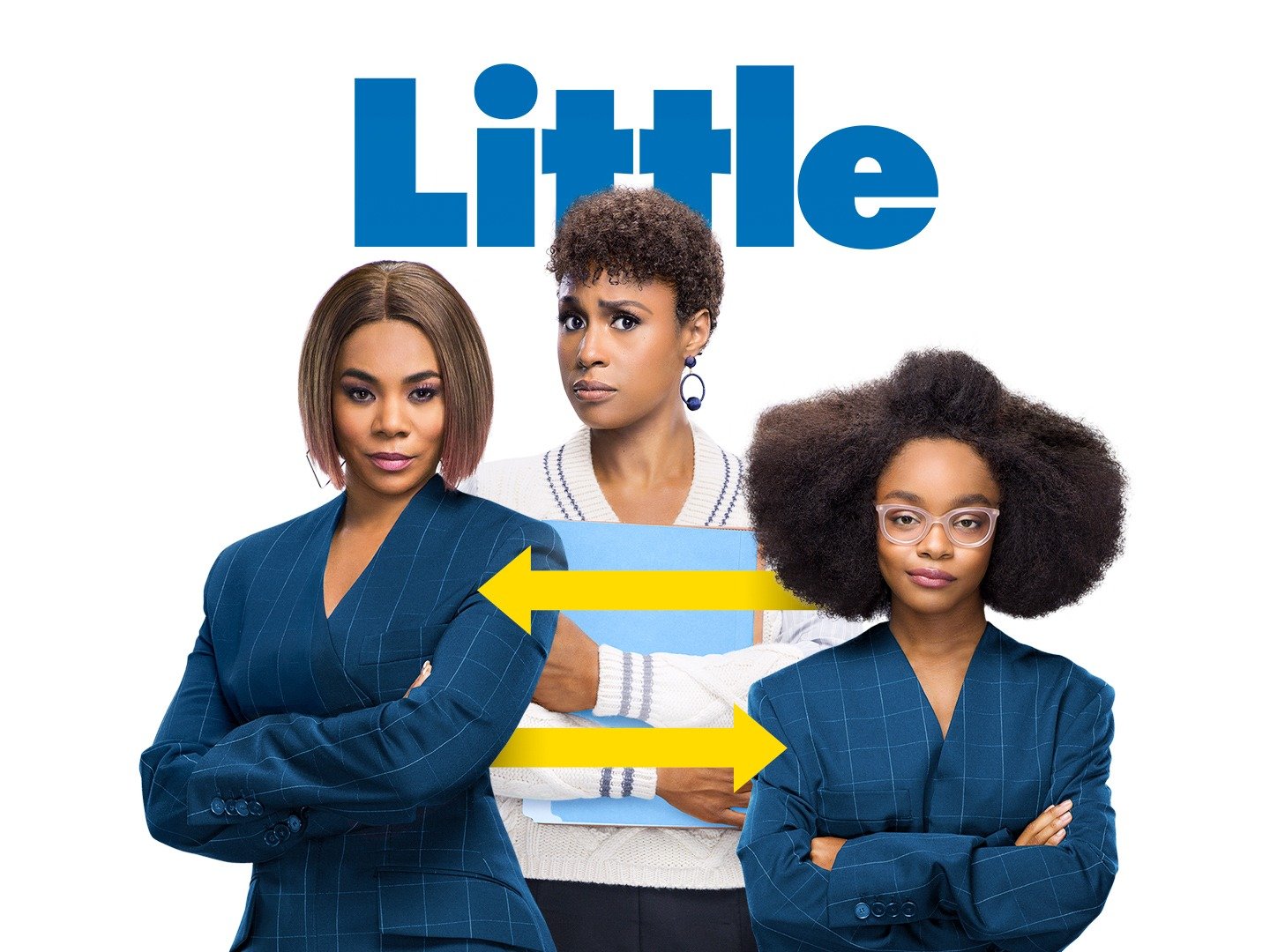Exploring The Concept Of Little - Little Kim Nude Meanings
Have you ever stopped to consider how much meaning a single, ordinary word can hold? The word "little," for example, seems simple enough, but it carries so many different shades of significance. It can point to something small in size, a brief moment in time, or even a modest quantity of something. In some respects, it's a word that opens up a whole world of ideas, especially when we think about what it means for someone to be "little," perhaps like a younger version of themselves, or to get to the core of a person's being.
This idea of becoming "little" is actually at the heart of a rather interesting story, a movie where an adult finds herself transformed back into a younger version of herself. It stars some familiar faces, like Regina Hall, Issa Rae, and Marsai Martin, and follows a boss who has a lot of demands, only to find herself changed into a child. This kind of transformation, you know, really makes you think about what it means to be small again, and how that might feel.
So, we're going to take a closer look at this concept of "little," not just as a word we use every day, but also how it plays out in stories, and what it might mean to truly get to the bare essence of something, like the unvarnished truth of being "little." We'll explore its many definitions and how they connect to the idea of a "little Kim" – a character who experiences this kind of youthful shift, and what that might reveal about the state of being small or young. It's quite a thought, isn't it?
- Czech Hunter 441
- Kobe Lol Twitter
- Gay Bondage Twitter
- Gay Hairy Twitter
- Wandsworth Guard Video X Twitter
Table of Contents
- Who is this "Little Kim" We are Talking About?
- What Does "Little" Actually Mean?
- The Story of Becoming "Little" - A Cinematic View
- Beyond the Obvious - Other Ways We Use "Little"
- The Journey of "Little" - From Small Beginnings to Bigger Ideas
Who is this "Little Kim" We are Talking About?
When we talk about "Little Kim" in this context, we're actually looking at a fictional character, one who goes through a rather dramatic change in a popular film. This character, in the story, is an adult woman who, through a surprising turn of events, finds herself transformed back into her younger self. It's a situation where the pressures of being an adult, all the responsibilities and expectations, suddenly vanish, and she's faced with the challenges and perspectives of a child once more. This shift, you know, makes for a lot of interesting moments and certainly gives you something to think about regarding growing up, or perhaps, growing down.
The film, which features Regina Hall, Issa Rae, and Marsai Martin, really explores what it might be like to experience life from a completely different point of view. The main character, who is usually quite overbearing in her adult life, has to learn to cope with being small again, both physically and in terms of her influence. So, in a way, "Little Kim" represents this character's experience of being reduced in size and age, prompting a whole new set of life lessons. It's a pretty unique setup, to be honest.
A Look at the Character's Personal Details
To give you a better sense of this character we're calling "Little Kim" – purely for the sake of discussion and connecting to the concept of being "little" – here are some details based on the film's premise. These are, of course, details about a story character, not a real person. So, you know, it helps to set the scene.
- Kio Cyr Leaked
- Breckie Hill Nudes Twitter
- Breastfeeding Twitter
- 3c Films Twitter
- Homemade Gay Porn Twitter
| Detail | Description (Based on Film's Premise) |
|---|---|
| Name (Adult) | Jordan Sanders (fictional) |
| Name (Transformed) | Young Jordan (what we're calling "Little Kim" for this discussion) |
| Current State | A woman transformed into her younger self |
| Key Relationships | Assistant (Issa Rae's character), younger self (Marsai Martin's character), adult self (Regina Hall's character) |
| Life Stage | Experiencing adulthood's pressures, then reverting to childhood |
| Personality (Adult) | Overbearing, demanding, focused on success |
| Personality (Younger Self) | Learning, adapting, seeing the world anew |
This table, you see, helps us frame the discussion around the "little" aspect of the character. It's about the transformation and the lessons learned when one is suddenly faced with being small again. It really makes you consider the impact of such a shift, doesn't it?
What Does "Little" Actually Mean?
Let's get down to the very core of the word "little." When we use it, what are we truly trying to say? Basically, "little" describes something that is not big, something small in its physical dimensions. You might say, for example, "This is a little table," to point out its modest size. That's a pretty straightforward use, and it's how most of us first learn the word, isn't it?
But the word "little" also has a way of talking about time. If someone says, "It's only a little way now," they might mean the journey will be short in its duration. Or perhaps, "I just need a little time," meaning a brief period. So, it's not just about physical space, but also about the passage of moments. It's quite a versatile word, you know, when you stop to think about it.
And then there's the idea of "little" referring to an amount. You could have a small amount of food or drink, or a present that isn't of great value but is still thoughtful. So, it really covers size, duration, and quantity, all at once. The word is surprisingly flexible in how it can be applied to many different things, which is pretty neat, actually.
Is "Little" Always About Size?
While "little" certainly points to something small in size or amount, it's interesting to consider if that's its only job. The word can, in some respects, describe something that is short in extent or duration, as we talked about. A "little way" to go, a "little while" to wait. It's not always about how much space something takes up, but how much time it occupies, or how much of something there is. This flexibility, honestly, makes it a rather useful word in our daily talks.
The Oxford English Dictionary, as a matter of fact, lists many meanings for "little," far more than you might expect, with some even being quite old-fashioned now. This shows just how much language evolves and how words can gather layers of meaning over a very long time. So, while size is a big part of it, it's clearly not the only thing "little" can tell us about, is that right?
Can "Little" Describe a Feeling?
It's interesting to think about whether "little" can describe something beyond the physical or measurable. While not directly about an emotion, the word can sometimes hint at a feeling of insignificance or a lack of importance. For instance, if something is described as "a little" problem, it might imply it's not a major concern, or that it evokes a mild sense of worry. So, in a way, it can color the perception of something, suggesting its impact is not large. It's more about how we perceive things, perhaps, than a direct emotional state, you know?
You can also use "so," "too," and "very" in front of "little" to emphasize just how small or brief something is. "So little time," "too little effort," "very little progress." These phrases, you see, often convey a sense of something being insufficient or inadequate, which can certainly stir up a feeling or a reaction in us. So, while it's not a feeling itself, it definitely influences the emotional tone of what we're saying, which is pretty cool.
The Story of Becoming "Little" - A Cinematic View
The movie "Little" gives us a wonderful way to think about what it means to actually become "little." The story centers on a boss who is, frankly, pretty tough on her assistant. Then, she wakes up one day to find herself as a thirteen-year-old girl. This isn't just a physical change; it's a complete shift in her life situation. She has to go back to school, deal with teenage social circles, and basically live a life she thought she'd left behind long ago. It's a pretty big deal, you know, to suddenly be so much younger.
This transformation forces her to see the world through different eyes. She experiences the challenges of youth again, the awkwardness, the desire to fit in, and the unique pressures that come with being a child. It's a story that, in a way, makes us think about our own pasts and what we might do differently if we had the chance to revisit our younger selves. The film uses this fantastical premise to explore very human themes about empathy, growing up, and understanding others, which is really something to consider.
How Does One Become "Little Kim" in a Story?
In a story like this, becoming "Little Kim" – or, more accurately, a younger version of oneself – usually happens through some kind of magical or unexpected event. In the movie, it's a wish made by a child that somehow comes true. This kind of plot device allows the story to explore themes that would be hard to touch upon otherwise. It's not about a real person named Kim literally becoming "nude" in any sense; it's about a character being stripped down to her younger, more vulnerable self, revealing who she truly is beneath her adult facade. That, you know, is the real heart of it.
The character, once "little," has to rely on others, particularly her assistant, to help her navigate her suddenly changed circumstances. This reversal of roles is a big part of the story's charm and its message. It teaches the character humility and helps her understand the people around her better. So, the "little" state is a catalyst for personal growth and a way for the story to show how a person can change for the better when they're forced to confront their own past and vulnerabilities. It's quite a clever way to tell a tale, honestly.
Beyond the Obvious - Other Ways We Use "Little"
Beyond its most common uses, the word "little" can pop up in some unexpected places, giving us a deeper sense of its reach. For instance, when we say someone is "small and underdeveloped," particularly in an older, less common usage, it speaks to a certain state of being. It's about more than just height or weight; it can suggest a lack of maturity or growth in some area. So, it's not always just about physical size, you know, but about a stage of development.
You can also find "little" in idioms and common sayings that give it a slightly different flavor. Think about how we might use it in phrases like "a little bird told me," which doesn't mean a tiny bird actually spoke, but rather that information was gained discreetly. These uses show how flexible language is and how words can take on meanings that go beyond their basic definitions. It's pretty interesting how that works, isn't it?
And when you're looking for different ways to say "little," you'd be surprised by how many there are. Thesaurus.com, for example, lists hundreds of alternatives, along with antonyms and example sentences. This just goes to show how rich our language is and how many subtle variations exist for even the simplest words. It's a good reminder that words are more than just their dictionary definitions; they're tools for expressing a whole range of thoughts and feelings, in a way.
The Unexpected Depths of "Little" - Including "Little Kim Nude" Interpretations?
Now, let's address the phrase "little Kim nude" in a way that respects the information we have and the word "little" itself. When we consider "nude" in this context, it's not about physical nakedness, but rather about the idea of being "stripped bare" or "uncovered" in a metaphorical sense. For a "little Kim" character, who is suddenly young again, this could mean being exposed to life without the usual defenses or experiences of adulthood. It's about revealing the unvarnished truth of a situation, or getting to the core of something without any pretense. That's really what it means, you know, to be bare in a conceptual way.
So, if we think about "little Kim nude," it might refer to the idea of a character being in a state where her true, unadorned self, perhaps her younger, more vulnerable self, is revealed. It's about seeing the raw, honest version of who she is when all the layers of adulthood and expectation are removed. This interpretation fits with the film's theme of transformation and self-discovery. It's about the character's journey to understand herself better by being forced into a simpler, more exposed state of being "little." It's a pretty powerful idea, honestly, to be so open and without cover in a metaphorical sense.
This kind of "uncovered" meaning also applies to the word "little" itself. When we look at its many definitions, we're essentially "uncovering" all the different ways it can be used, stripping away any single, narrow view to see its full breadth. From describing something small in size to a short period of time, or even a small amount of something, the word "little" itself is quite revealing in its versatility. It shows us how language works, how words can be both simple and complex, depending on how you look at them. So, in a way, we're exploring the "nude" or bare truth of the word "little" and its connection to a character who becomes "little."
The Journey of "Little" - From Small Beginnings to Bigger Ideas
The word "little" truly has a fascinating journey, doesn't it? It starts off describing something not big, but then it stretches to cover so much more. It can refer to a short time, a small amount, or even, in a story, a person who becomes young again. This flexibility shows how our language adapts and how words can carry many different burdens of meaning. It's pretty cool how a simple word can do so much work, if you think about it.
From crossword puzzles that rely on its many definitions to films that use its concept as a central plot point, "little" is a word that continues to surprise us. It reminds us that even the most common words have depths we might not consider at first glance. It encourages us to look closer, to really dig into what we mean when we use language. And that, you know, is a pretty valuable thing to do.
So, whether it's describing a small table, a brief moment, or a character who suddenly finds herself as a child again, "little" is a word that packs a lot of punch. It's a testament to how rich and varied our communication can be, even with words that seem so basic. It makes you appreciate the nuances, doesn't it?



Detail Author:
- Name : Breanne Rippin
- Username : rollin.walker
- Email : ceasar.willms@gusikowski.org
- Birthdate : 1989-10-26
- Address : 25159 Polly Fields Suite 196 Garrytown, HI 77909-3955
- Phone : +1-803-444-0317
- Company : Kunde-Buckridge
- Job : Training Manager OR Development Manager
- Bio : Dicta qui voluptatem eos voluptatem unde in possimus. Nulla quo laborum rerum consequatur reiciendis. Molestias natus amet dolor dolor voluptatem.
Socials
tiktok:
- url : https://tiktok.com/@aliyahrice
- username : aliyahrice
- bio : Quisquam sunt aut nostrum non minus sed corporis sapiente.
- followers : 4097
- following : 818
twitter:
- url : https://twitter.com/ricea
- username : ricea
- bio : In minus iure eius aperiam. Aspernatur iusto dolorem minus voluptas beatae.
- followers : 5583
- following : 958